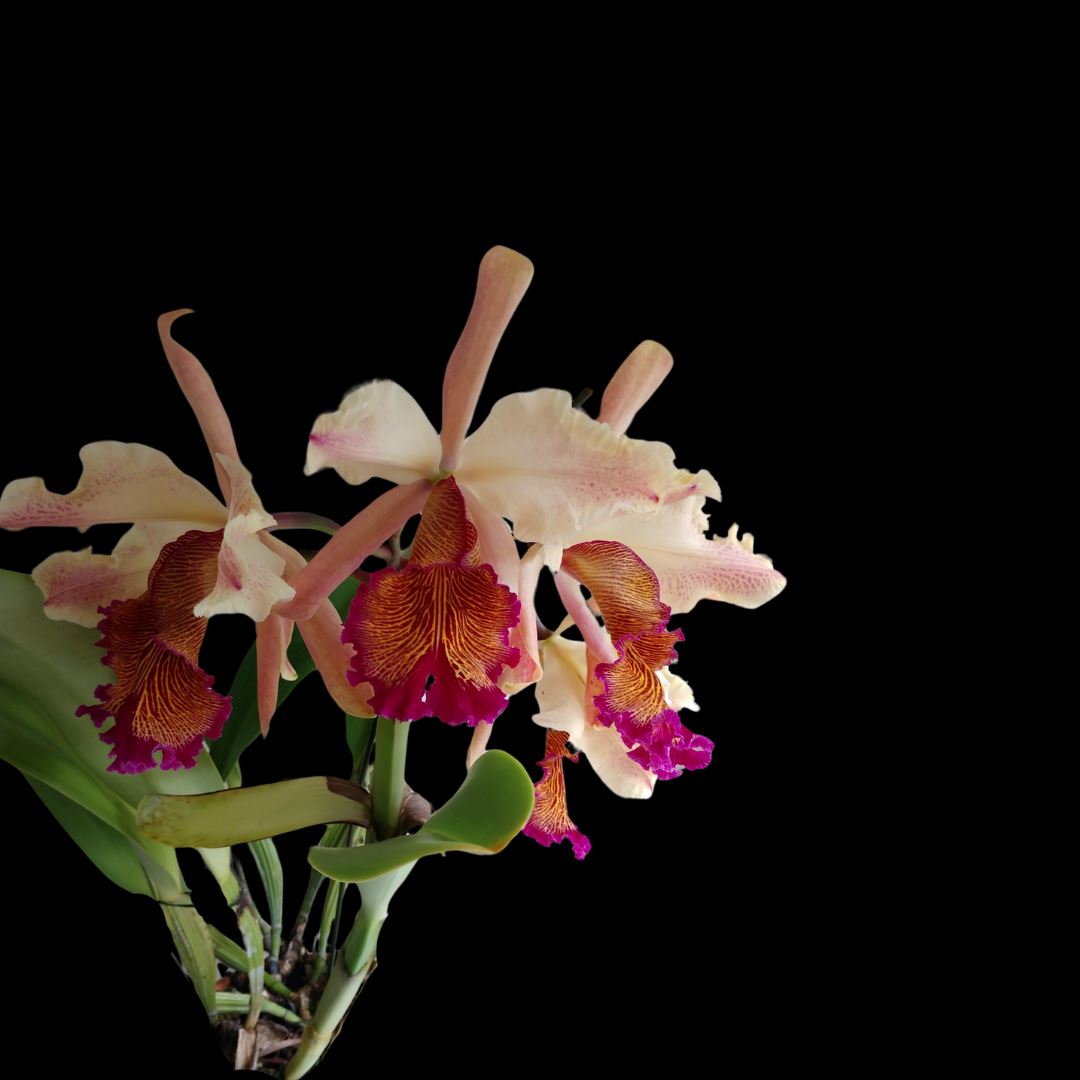La Foresta Orchids
Cattleya dowiana var. rosita
Cattleya dowiana var. rosita
Couldn't load pickup availability
Introducing the breathtaking Cattleya dowiana var. rosita orchid, a botanical marvel destined to elevate any collection with its exquisite beauty and rare charm.
Originating from the verdant landscapes of Central and South America, this orchid variety is a testament to nature's artistry. Its rose-colored petals, accentuated by a dark magenta midrib and edges, create a captivating display that commands attention. Each bloom, measuring up to 6 inches in diameter, is a symphony of color and form, boasting bright yellow veining that adds depth and allure.
Named "rosita" for its resemblance to a delicate rose, this orchid exudes romance and elegance with its pinkish-lavender hue. Its massive, intricately ruffled lip, reminiscent of flames dancing in the wind, adds a striking contrast to its delicate appearance, making it a true showstopper.
Highly sought-after by orchid enthusiasts, the Cattleya dowiana var. rosita thrives in warm, humid conditions and bright, indirect light. Cultivating this botanical treasure requires attention to detail and specific growing conditions, making it a prized possession for experienced growers and dedicated enthusiasts alike.
To ensure its optimal growth and blooming, provide this orchid with moderate humidity, regular watering, and a well-draining medium such as bark or sphagnum moss. With temperatures ranging from 60 to 80 degrees Fahrenheit.
Cattleya dowiana var. rosita add a touch of patience, and you'll be rewarded with annual blooms that fill the air with a sweet, spicy fragrance, delighting the senses and enriching your space.
This is a near blooming size orchid in a 4” clay pot, about 2 to 3 years to bloom. Grown from seed, very limited!
Don't miss your chance to own this rare and unique orchid. With its stunning beauty, fragrant blooms, and impressive size, the Cattleya dowiana var. rosita is sure to captivate and inspire admiration for years to come. Embrace the allure of nature's masterpiece and elevate your orchid collection with this extraordinary specimen today!












